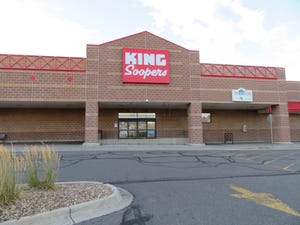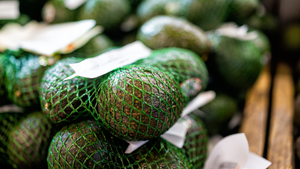UFW ENDS SUPERMARKET GRAPE BOYCOTTUFW ENDS SUPERMARKET GRAPE BOYCOTT
DELANO, Calif. -- The United Farm Workers Union here has called off a 10-year boycott of grapes in supermarkets, and is shifting gears to target growers directly.On March 31, about 750 union members began a three-week, 330-mile march from this small farming community to the California state capitol building in Sacramento. The purpose: to publicize its renewed efforts to organize farm workers and to
April 11, 1994
TONY SPLEEN
DELANO, Calif. -- The United Farm Workers Union here has called off a 10-year boycott of grapes in supermarkets, and is shifting gears to target growers directly.
On March 31, about 750 union members began a three-week, 330-mile march from this small farming community to the California state capitol building in Sacramento. The purpose: to publicize its renewed efforts to organize farm workers and to demand new contracts with farmers. The union hopes to recruit 10,000 new members during the march.
The grape boycott had been the primary focus of the union in recent years. Because its power and effectiveness in the grape industry has declined, leaders of the union decided to turn to organizing efforts.
"The pilgrimage is about recommitment and penance," UFW's leader, Arturo Rodriquez, said at a rally before the march began. Rodriquez is the son-in-law of union founder Cesar Chavez, who died almost a year ago. "Recommitment to building a national union for farm workers and penance because all of us let Cesar carry the responsibility for organizing the union on his shoulders. Now the burden for fulfilling his dreams and our own rests squarely on each of us."
The union had been waning in recent years. It currently has no contracts with state grape growers, while 20 years ago it held contracts with 80% of the growers. The union claims 15,000 members today, versus 100,000 during the 1970s. Farm workers' wages have leveled off and in some cases declined, according to studies. And the boycott just called off is generally considered a failure.
"We have always known that the leadership of UFW would have to give up the boycott," said Bruce Obbink, president of the California Table Grape Commission, Fresno, Calif., which represents the state's grape growers. "By any measure, the boycott was a failure. It didn't slow sales. During the past 10 years, the industry consistently shipped larger, often record-breaking crops at good prices."
The news of the termination of the boycott and the union's renewed focus drew mixed reactions from retailers.
"We operated pretty much as normal throughout the entire boycott," said Roger Schroeder, vice president of produce at Hughes Family Markets, Irwindale, Calif. "It didn't have much of an effect on us. I don't know what kind of impact they'll have on us in the future, if any."
The end of the boycott "relieves the retailer from having to deal with farm labor issues," said a southern California retailer who asked not to be identified. "It's nice that the union will go back to dealing with the growers who are the ones they have a gripe with. "When they deal with the retailer, there is no appropriate stance we can take."
The UFW got its start three decades ago when Chavez organized a group of workers and walked the same route as the current pilgrimage. The union has had its ups and downs. A grape and lettuce boycott sponsored by the union in the early 1970s helped push California to pass the Agriculture Labor Relations Act, giving farm workers the right to collective bargaining and the right to sue on unfair practices.
About the Author
You May Also Like




